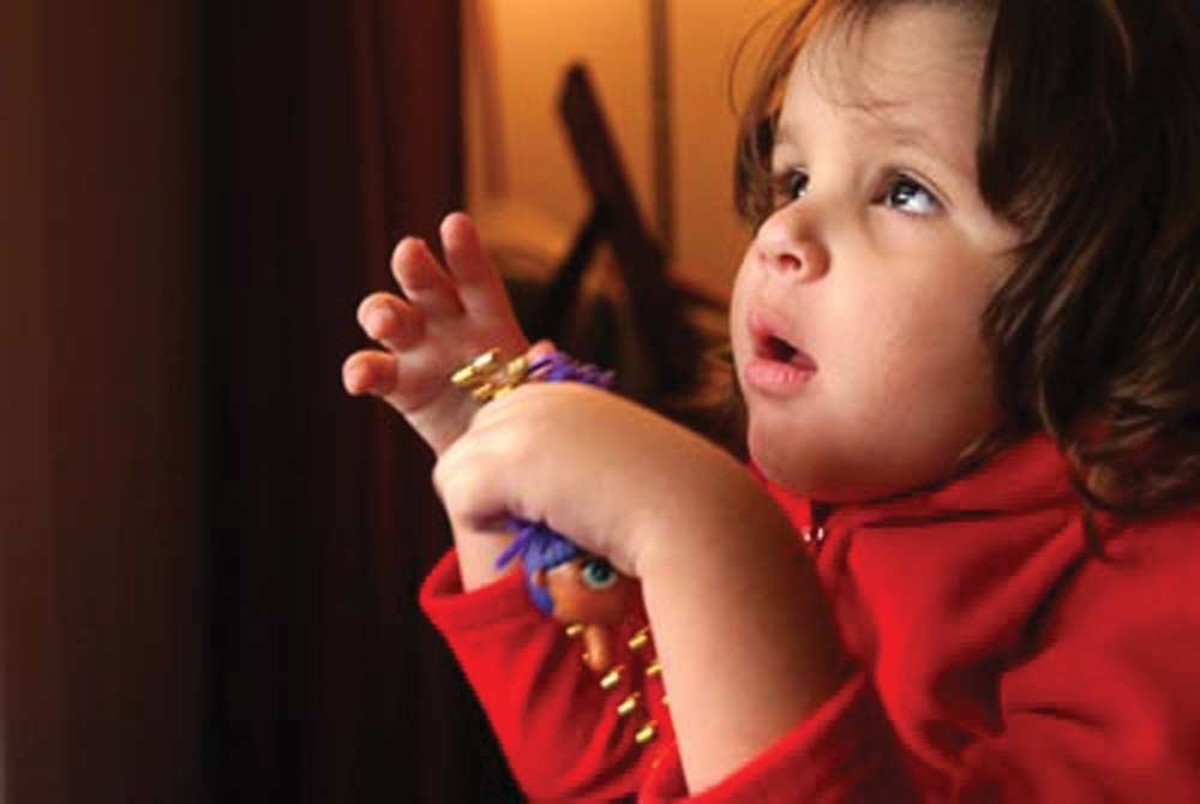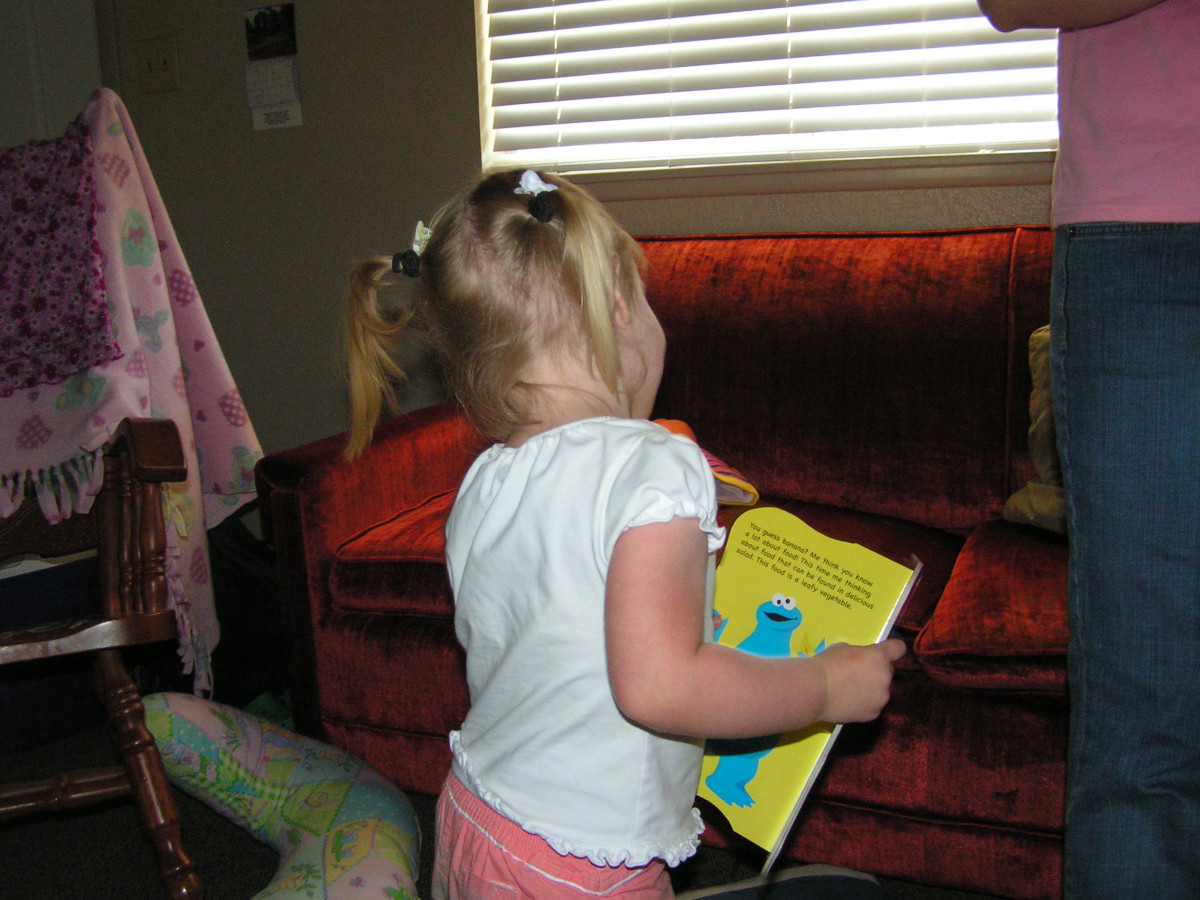Tips For Parents Of Latchkey Children

The Profile Of A Latchkey Child
Eleven year old Samantha walks a short two blocks home from school every day. She hurries down the sidewalk, only stopping to wave to her friends along the way. She knows she must be home by 3:15 to catch her mother's phone call; even a lapse of five minutes will cause her mother concern. She reaches her home, punches in the code at the door and enters just in time to pick up the phone. Sam, as her mom calls her, is a latchkey kid.
Wikipedia defines a latchkey kid as a child who returns home from school to an empty house because his or her parents are away at work, or often left at home with little or no parental supervision. The term "latchkey" originated from a 1944 NBC documentary on World War II when one parent was called to war and the other parent had to work; thus, creating the children who were left at home. A latchkey to the house door was strung around the child's neck for safekeeping so that he or she could enter the home after school.
Today millions of children are left at home while parents work and are faced with having the responsibility of caring for themselves and sometimes their siblings. Depending upon the situation and the child, a child's latchkey experience can prove beneficial and build responsibility and self-confidence.
Statistics On Latchkey Kids
Percent or Number
| Fact
|
|---|---|
2.4 million
| Children under 12 home alone before or after school.
|
7 million (of 38 million)
| 5 - 14 year olds left to care for themselves six hours per week.
|
13%
| Children home alone 10 hours per week. (65% are 12- 14 years old)
|
600,000
| 5 - 8 year olds fend for themselves
|
3.4 million
| Under care of sibling
|
22%
| Children from homes with income twice the poverty level. (11% are at poverty level)
|
*****
| Children of single fathers are more likely to be left home alone.
|
Source: Child Advocate Home Alone
| 10/2000 report, based upon 1995 statistics
|
Cast Your Vote
Were you a latchkey kid?
When Is It Safe To Leave Your Child Alone?
When I was a Director of Child Care, parents of middle school children often asked me if it was safe to leave their child home alone. At the time I was in a state that did not specify any age, but the health agency recommended twelve years of age as a safe guideline. The US legal law system specifications are not defined for children under the age of 18 being left home alone. However, should harm come to a child, parents can be held responsible by child social services and may face court proceedings.
Generally, I advise parents to consider the maturity of their child along with the age. They should consider past behavior regarding homework, chores and play activities. Have they demonstrated good choices and followed set rules? Parents must also chat with their child about how they feel being left alone for a period of time. Some children consider the time alone to be a sign of growing up and desire the opportunity. Other children are afraid of being home without adult supervision.
As a precaution, I do not advise leaving children under the age of ten home alone, they are not capable of making logical (cause and effect) decisions regarding safety should an emergency arise. And, never should a child be left home alone overnight!
LatchKey Kids Defined
Questions To Consider
Here are some questions to ask yourself when considering leaving a child at home alone:
- How long will your child be home alone? Will it be during the morning hours before school or the afternoon hours after school?
- Will he be required to fix himself a snack or a meal?
- Will she be alone? If siblings are under her care, is she capable of this and willing to do so?
- How child-safe is your home?
- Do you believe your neighborhood is safe?
- Is there someone close by who he can call if there is an emergency?
There are all questions that must be answered prior to making a decision to leave a child home alone. Rules must be set for guiding a child regarding the questions above. For instance, if required to make a meal is he allowed to use the stove?
Rules to discuss with your child are:
- Must she remain indoors or can she play outside in the yard?
- Can he ride his bike? And if yes, where?
- Can she go to the neighborhood playground?
- Is a visit to the next door neighbor allowed?
- Can friends come over?
- If the phone rings, should he answer it?
- Is the use of computers, laptops, or TV an option?
Latchkey Kids Learn Responsibility!
Making Latchkey A Successful Experience
The average latchkey child is left home alone between 3 p.m to 6 p.m., and an average of six hours per week. When you consider this is a child, the time can be equitable to an adult's work day. Therefore, parents should consider how their child would fill the time they are alone. Boredom and loneliness are factors affecting the use of time left alone. If left without guidance, a child will resort to negative behavior and it may lead to depression, poor self-esteem, and reduced school performance.
Check-in: Set a rule on calling to check-in with a parent as soon as they enter the home. Some parents install an in-home security system to monitor a child's activity at home. Depending upon the brand, the system can be accessed from a computer or cell phone.
Technology Usage: Will your child be allowed to watch TV or use the computer? If so, you may want to consider adding parental codes and locks for safety and security measures. I highly recommend this regardless of permission, the temptation to explore may present itself and you want to ensure your child is protected from harm. Also, set a time frame for usage, two hours daily is recommended by the American Pediatric Association.
Homework: Allow at least twenty minutes for your child to unwind before requiring them to complete homework assignments. Setting homework time as a standard after school is the best guard against poor school performance. Ideally, this should be accomplished prior to any other activity such as TV and playing games.
Chores: Assignment of household chores will help your child to learn responsibility and to make good use of time. Younger children can tidy their rooms or feed the family pet. Older children may be able to set the table for dinner, and even begin simple meal preparations (make sure the chores are age appropriate). Having chores build self-confidence in children and allows them to contribute to the family household.
Awards/Discipline: Discuss with your child the consequences of not following the rules. Punishment should be age appropriate and match the rule broken. Setting up a reward system encourages obedience and sets a positive attitude towards following rules. A Friday night pizza, or special in-home movie event is always a great incentive.
Contact List: Make sure your child knows his address, phone number, your work number and the phone numbers of people to contact in case of an emergency. Posting phone numbers by the main home phone or in a highly visible area is recommended for convenience in dialing. Some parents provide their child a cell phone programmed to dial certain numbers, usually their safe-contact adults such as mom, dad, grandparent, or a trusted neighbor.
Quotes Regarding Children. . .
In the United States today, there is a pervasive tendency to treat children as adults, and adults as children. The options of children are thus steadily expanded, while those of adults are progressively constricted. The result is unruly children and childish adults. —Thomas Szasz
While we try to teach our children all about life,
Our children teach us what life is all about.
—Angela Schwindt
It is a wise father who knows his own child. —William Shakespeare
A child of five would understand this. Send someone to fetch a child of five! —Groucho Marx
Trial Runs and Alternative Care
Although your child may be ready to stay at home alone, you may feel you are not. Consider having a trial run as a test for your child's readiness and self-care. Make a trip to the grocery store or jog around the neighborhood for an hour. This will give you both some indication of how it feels to be left alone. Discuss how each of you feel afterwards and set a plan of action for being home alone.
Alternatives to staying home alone are after-school and church programs, in-home child care (how about asking a grandparent to come over for awhile?), or asking a neighborhood mom to babysit. The local YMCA may offer child care and after-school programs at a reasonable cost.
Check your area for "Call Reassurance" (CARE) programs. These are often free to local citizens and monitored by the local law enforcement authorities. They provide services to latchkey children and only require online subscriptions by the parent. Children check-in with the service when they arrive home and can call for answers to questions they may have regarding home safety.








